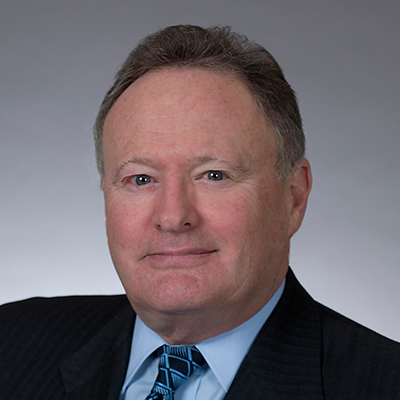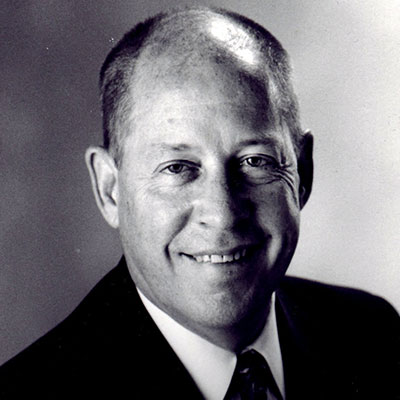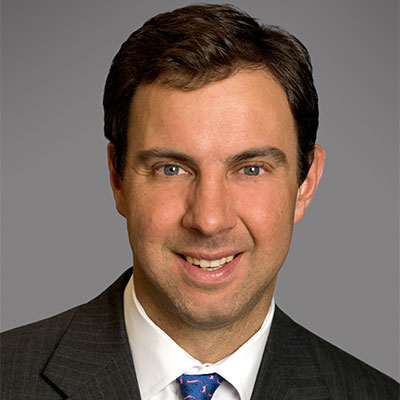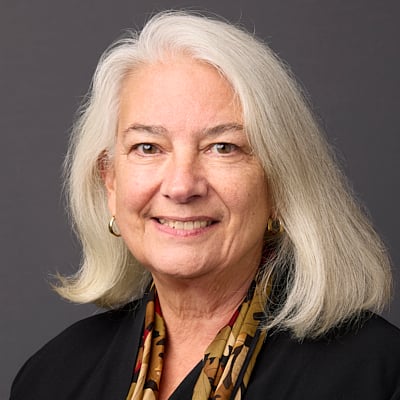The National Law Journal's Verdicts of the Year - 2001
Breach of Contract
Defense Contractor Lockheed Hit with $64.5 Million Verdict
Verdict: $64,500,000.00
Case Type: Fraud
Case: Cable & Computer Technology Inc. v. Lockheed Sanders aka Sanders, a Lockheed Martin Co., No. CV97-5315
Court: United States District Court, Central District, Los Angeles, CA
Judge: Carlos Moreno
Verdict Date: 04-05-2001
Plaintiff(s) Attorney:
Eric C. Liebeler; Kirkland & Ellis; Los Angeles, CA, for Cable & Computer Technology Inc.
Jeffrey S. Davidson; Kirkland & Ellis; Los Angeles, CA, for Cable & Computer Technology Inc.
Viddell Lee Heard Jr.; Kirkland & Ellis; Los Angeles, CA, for Cable & Computer Technology Inc.
Expert:
M. Chapman Findlay; Economics; Los Angeles, CA called by: Jeffrey Davidson
Bernard Weiss (USAF Ret.); Industrial, FL called by: Jeffrey Davidson
Demonstrative Evidence: None
Defendant(s) Attorney:
Dominic Surprenant; Quinn Emanuel Urquhart Oliver & Hedges; Los Angeles, CA, for Lockheed Sanders, a division of Lockheed Martin, Lockheed Martin, Lockheed Federal Systems, a subsidiary of Lockheed Martin
John B. Quinn; Quinn Emanuel Urquhart Oliver & Hedges; Los Angeles, CA, for Lockheed Sanders, a division of Lockheed Martin, Lockheed Martin, Lockheed Federal Systems, a subsidiary of Lockheed Martin
Marshall M. Searcy; Quinn Emanuel Urquhart Oliver & Hedges; Los Angeles, CA, for Lockheed Sanders, a division of Lockheed Martin, Lockheed Martin, Lockheed Federal Systems, a subsidiary of Lockheed Martin
Expert:
Louis Goldman; Accounting; Costa Mesa, CA called by: John Quinn, Dominic Surprenant, Marshall Searcy
Richard Hardy; Aviation; Seattle, WA called by: John Quinn, Dominic Surprenant, Marshall Searcy
Demonstrative Evidence: None
Lockheed Martin and two of its subsidiaries were liable for more than $64 million in damages, a California jury said. However, the trial court reduced the award to just over $52 million.
Cable & Computer Technology Inc. (CCT) contended that it had entered into an oral agreement in 1996 with Sanders, a division of Lockheed Martin Corp., to team up to bid on and win a contract to upgrade the mission computers for the B-1B bomber. The mission computer is the central brain of the aircraft and the U.S. Air Force was seeking a defense contractor to bring these computers up to date, noted plaintiff's attorney Jeffrey S. Davidson.
CCT and Lockheed Sanders spent six months preparing a bid, but never signed an agreement. "Then 12 days before the bid was due, Lockheed Sanders just walked out," Davidson said.
Shortly afterward, Lockheed Martin Federal Systems, a Lockheed Martin subsidiary, was awarded the Air Force contract.
CCT sued Lockheed Martin, the subsidiary and Sanders, charging breach of contract, intentional interference with prospective advantage, fraud and breach of confidence.
The defendants contended that, as a matter of law, there was no breach of contract or interference or fraud, because there was no written or executed contract between CCT and Sanders. "There was no oral agreement to team on the procurement at issue," said defense attorney John B. Quinn. "These things are done in writing."
CCT contended that despite the lack of a signed written agreement, there was a contract, said Davidson. At trial, the plaintiff called as witnesses employees of CCT and Lockheed Sanders who described actions by both companies in putting together the prospective bid and "who confirmed that there was such a deal," he said.
Injury:CCT claimed pecuniary losses of $11.22 million in compensatories, representing $5,762,902 for the contract that was actually lost and $5,457,098 for the value of follow-on contracts.
Verdict Information: On March 28, 2001, the Los Angeles jury found the defendants liable on all counts. On April 5, they awarded $64.5 million, including $53.28 million in punitives. Following the trial, Judge Carlos Moreno halved the compensatory damages by overturning as speculative that portion of the award that was for future contracts that CCT might have acquired had it won the mission computer upgrade contract, or $5,457,098. He also shaved the punitives. Noting that the jury had originally awarded punitives in a ratio of approximately 5:1, to stay consistent, he felt that the punitives should be cut to maintain the 5:1 ratio, leaving the judgment at $31.64 million.
CCT is appealing the reduction; the defendants have appealed the entire judgment.
________________________________________
Patent
Aircraft Engine Company Liable for Patent Infringement
Verdict: $46,580,000.00
Case: Honeywell International Inc. and Honeywell Intellectual Properties Inc. v. Hamilton Sundstrand Corp., No. 99-CV-309
Court: U.S. District Court, District of Delaware, Wilmington, DE
Judge: Gregory M. Sleet
Verdict Date: 02-16-2001
Plaintiff(s) Attorney:
Jonathan F. Putnam; Kirkland & Ellis; New York, NY, for Honeywell International Inc., Honeywell Intellectual Property Inc.
Robert G. Krupka; Kirkland & Ellis; Los Angeles, CA, for Honeywell International Inc., Honeywell Intellectual Property Inc.
Expert: None
Demonstrative Evidence: None
Defendant(s) Attorney:
David Herrington; Cleary, Gottlieb, Steen & Hamilton; New York, NY, for Hamilton Sundstrand Corp.
Joshua H. Rawson; Cleary, Gottlieb, Steen & Hamilton; New York, NY, for Hamilton Sundstrand Corp.
Justin S. Anand; Cleary, Gottlieb, Steen & Hamilton; New York, NY, for Hamilton Sundstrand Corp.
Richard F. Ziegler; Cleary, Gottlieb, Steen & Hamilton; New York, NY, for Hamilton Sundstrand Corp.
Expert: None
Demonstrative Evidence: None
An aircraft engine company was liable for over $46 million in damages from willful patent infringement, a Delaware jury said.
Honeywell International Inc. applied for two separate patents in 1981 covering a system for controlling surge, or airflow, in auxiliary power units for gas turbine engines in commercial aircraft. The auxiliary power units, mounted in the tails of jet planes, control power to the reading lights and air vents when the engine is off, said Honeywell attorney Jonathan Putnam. The airflow to the units has to be controlled under varying demands for power or the auxiliary power unit will be damaged, he said, adding, "The Honeywell patents covered a set of novel methods for controlling surge."
In 1999, Honeywell and its subsidiary, Honeywell Intellectual Property Inc., sued Hamilton Sundstrand Corp., charging that Sundstrand had violated the patents on the Honeywell surge-control method. Honeywell charged that Sundstrand had copied the Honeywell method from auxiliary power units sold to the French company Airbus, which was also a customer of Honeywell's.
Hamilton Sundstrand denied any infringement and claimed that the Honeywell patents were invalid on the basis of prior art.
Injury: Honeywell claimed that it suffered lost profits and royalties.
Verdict Information: The jury found that the patents were valid, that the patents had been infringed upon and that the infringement was willful. The jury awarded $46.58 million: $45 million in lost profits and $1.58 in reasonable royalties. This award could be trebled by the judge. The defendant will appeal.
_______________________________________
Toxic Tort
Motorola Not Liable for Use of Chemical Cleaning Product
Verdict: n/a
Case: Melody Baker, Amy Amari, Thomas Beagan, and Michelle Unterberger v. Motorola Inc., No. CV92-02603
Court: Maricopa County Superior Court, AZ
Judge: Steven D. Sheldon
Verdict Date: 05-22-2001
Plaintiff(s) Attorney:
Anthony R. Lucia; Treon, Strick, Lucia & Aquirre; Phoenix, AZ, for Michelle Unterberger, Thomas Beagan, Amy Amari, Melody Baker
Philip A. Robbins; Robbins & Green; Phoenix, AZ, for Michelle Unterberger, Thomas Beagan, Amy Amari, Melody Baker
Richard T. Treon; Treon, Strick, Lucia & Aquirre; Phoenix, AZ, for Michelle Unterberger, Thomas Beagan, Amy Amari, Melody Baker
Robert L. Jennings, Jr.; Goldberg, Persky, Jennings &White; Pittsburgh, PA, for Michelle Unterberger, Thomas Beagan, Amy Amari, Melody Baker
Expert:
Jean Boyer MD; Hydrology; Boulder, CO called by: Anthony Lucia
John Parker MD; Hydrology; Blacksburg, VA called by: Anthony Lucia
William Gookin, Jr.; Groundwater Pollution; Scottsdale, AZ called by: Anthony Lucia
Benjamin Harding P.E.; Water Distribution; Boulder, CO called by: Anthony Lucia
Peter Colwell Ph.D.; Economics; Champaign, IL called by: Anthony Lucia
Wilbur Mundy Ph.D.; Appraisal; Seattle, WA called by: Anthony Lucia
Richard Lemen; Epidemiology; Duluth, GA called by: Anthony Lucia
Raymond Loehr; Hazardous Waste; Austin, TX called by: Anthony Lucia
Demonstrative Evidence: None
Defendant(s) Attorney:
Garrett B. Johnson; Kirkland & Ellis; Chicago, IL, for Motorola Inc.
Helen E. Witt; Kirkland & Ellis; Chicago, IL, for Motorola Inc.
Susan O'Sullivan McGuire; Kirkland & Ellis; Washington,, DC, for Motorola Inc.
Terrence J. Dee; Kirkland & Ellis; Chicago, IL, for Motorola Inc.
Thomas E. Dutton; Kirkland & Ellis; Chicago, IL, for Motorola Inc.
W. Allen Woolley; Kirkland & Ellis; Chicago, IL, for Motorola Inc.
Expert:
Paul Johnson; Appraisal; Phoenix, AZ called by: Garrett Johnson, Helen Witt, Thomas Dutton, W. Woolley, Terrence Dee, Maria Rivera, Susan McGuire
Barbara Beck; Toxicology; Cambridge, MA called by: Garrett Johnson, Helen Witt, Thomas Dutton, W. Woolley, Terrence Dee, Maria Rivera, Susan McGuire
Davis Ford; Hazardous Waste; Austin, TX called by: Garrett Johnson, Helen Witt, Thomas Dutton, W. Woolley, Terrence Dee, Maria Rivera, Susan McGuire
Gerald Zaddack; Appraisal; Phoenix, AZ called by: Garrett Johnson, Helen Witt, Thomas Dutton, W. Woolley, Terrence Dee, Maria Rivera, Susan McGuire
Philip Guzelian Ph.D.; Toxicology; Denver, CO called by: Garrett Johnson, Helen Witt, Thomas Dutton, W. Woolley, Terrence Dee, Maria Rivera, Susan McGuire
Louis Wilde; Economics; Los Angeles, CA called by: Garrett Johnson, Helen Witt, Thomas Dutton, W. Woolley, Terrence Dee, Maria Rivera, Susan McGuire
Demonstrative Evidence: Witnesses for Motorola included Phoenix's Gerald Zaddack and Paul Johnson, consulting appraisers who built the computerized data system that helped vindicate Motorola. Also helping jurors understand those materials was Louis Wildey, an economist with Los Angeles' Charles Rivers & Associates.
Motorola Inc. used the degreasing agent trichlorethylene (TCE) to clean electronic parts made in its Scottsdale. Arizona plant. They began phasing out the use of the TCEs in the 70's due to air pollution concerns. In early 1975, Motorola completely phased out the use of the TCEs. By that time it had been determined that a significant amount of TCE had been dumped into the area around the plant and had contaminated the ground water. Motorola began paying to remove the TCE from the site. In 1992, however, owners of land surrounding the site filed a class action suit against Motorola contending that the contamination of the groundwater severely diminished the value of their holdings.
From 1957 to 1975, Motorola Inc. used the degreasing agent trichlorethylene (TCE) to clean electronic parts made in its south Scottsdale, Ariz., plant. "Motorola had begun phasing out TCEs in the 1970s because of air pollution concerns." In early 1975, after some reports on animal testing indicated TCE could be a carcinogen, "Motorola completely phased it out," said defense counsel Garrett B. Johnson. By that time, however, a significant amount of TCE had been dumped into the area around the plant and TCE had contaminated the groundwater.
The area was identified as a Superfund site in 1983 and Motorola began paying to remove the TCE, he said. But the owners of property near the plant contended that the contamination of the groundwater had severely diminished the value of their holdings and, in 1992, filed a class action against Motorola. The class of about 22,000 homeowners and 1,500 owners of commercial buildings in south Scottsdale was certified in 1994. The plaintiffs also sued several other companies who used and discarded TCE in the area. According to the class action, not only were property values depressed by the contaminated water, but hundreds of residents also allegedly needed ongoing monitoring for potential health problems. The other defendants, including Siemens and AlliedSignal Inc., all settled before trial for a total of more than $40 million, he reported.
Motorola contended that the company was not negligent in its use or disposal of TCE. Disposal methods "were consistent with the best practices at the time," Johnson said.
Motorola believes the case turned on Motorola's contention that the plaintiffs had not been harmed by the contamination. "The fact is there hasn't been any property value dimunition," said Johnson. To establish this point at trail, Motorola produced a database, covering every real estate transaction in Scottsdale and the surrounding area since 1973, he said. The data base also covered real estate sales in other cities, such as Tempe, Ariz. Motorola presented the database at trial through its real estate appraisal and property experts. These experts testified that the properties in south Scottsdale "did as well or better than properties in other areas," Johnson said.
The plaintiffs were seeking $260 million in actual damages, plus punitives. Plaintiff attorney Tony Lucia had no comment.
Injury: Plaintiff owners claimed that the value of their holdings around Motorola's Scottsdale, Ariz. plant was severely diminished due to Motorola's alleged TCE dumping in that area as well as TCE contamination of the area's groundwater.
Verdict Information: On May 22,2001, the jury found for Motorola and rejected plaintiff's claim. Jury forewoman Kristin Marshall, a recruiting coordinator at Intel Corp., says that she and the other jurors "could not visualize" that the affluent, single family ranch homes in south Scottsdale, surrounded by fertile palm trees and other desert greenery, was a depressed "toxic waste dump," as plaintiffs claimed. There was no appeal. Following the trial, Motorola settled for a total of $15 million; the settlement covers these plaintiffs, property owners in east Phoenix who were suing over another Motorola facility, plus personal injury and medical monitoring claims.
________________________________________
Products Liability
Kirkland partner Kenneth Starr was retained by Philip Morris to fight the punitive judgment against Philip Morris in Boeken v. Philip Morris Inc. His successful representation knocked the punitives down from $3 billion to $100 million. Click here to read the full story on law.com.
This article republished with permission from law.com and the February 4, 2002 edition of The National Law Journal. c 2002 NLP IP Company




